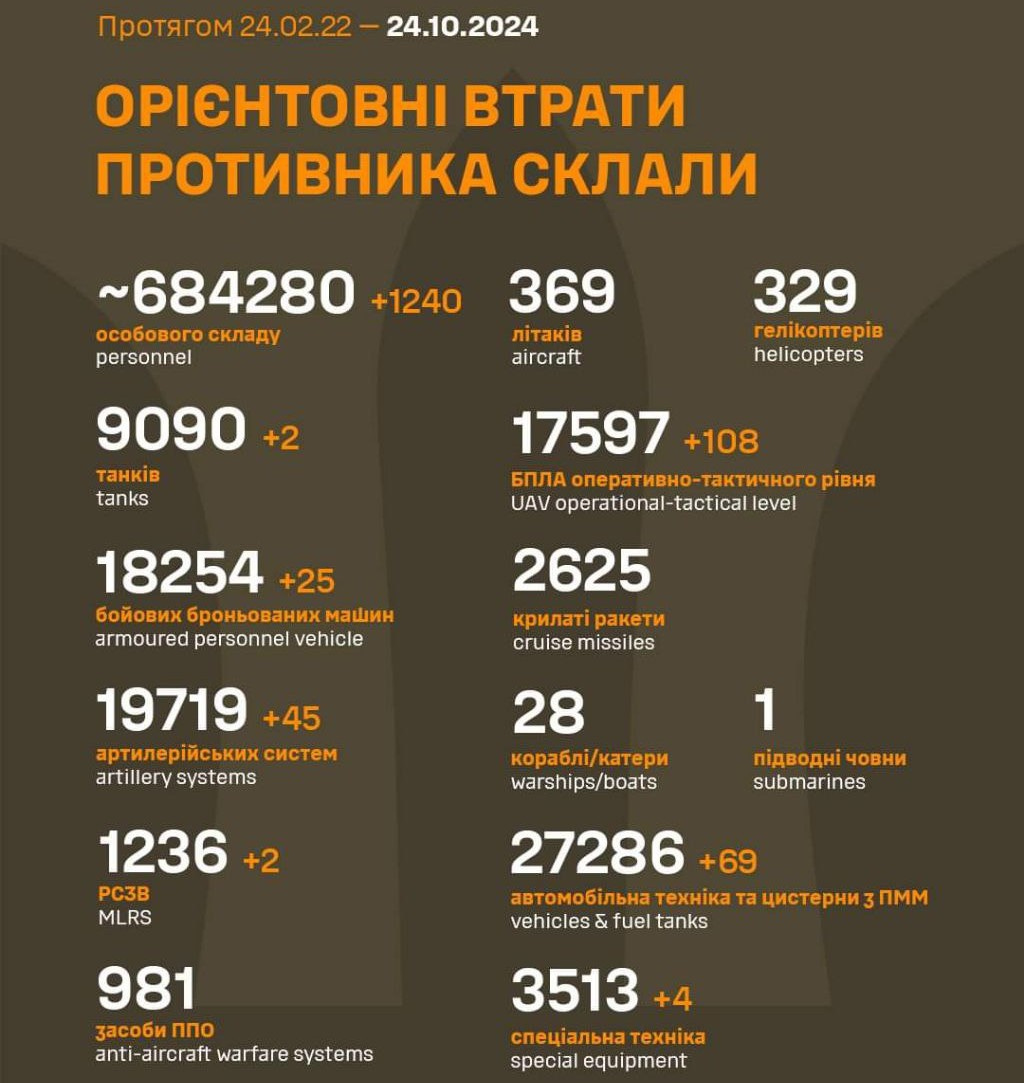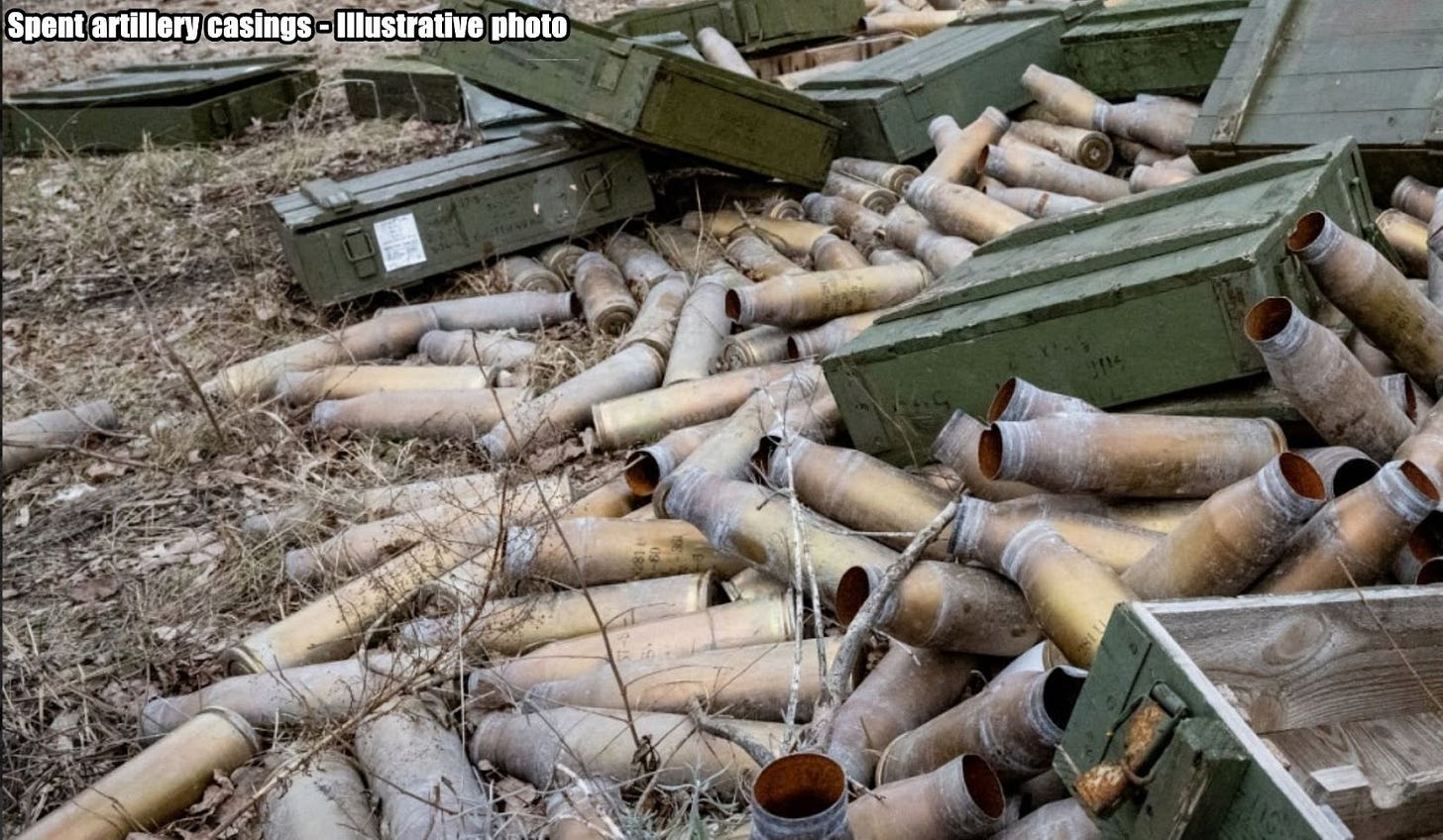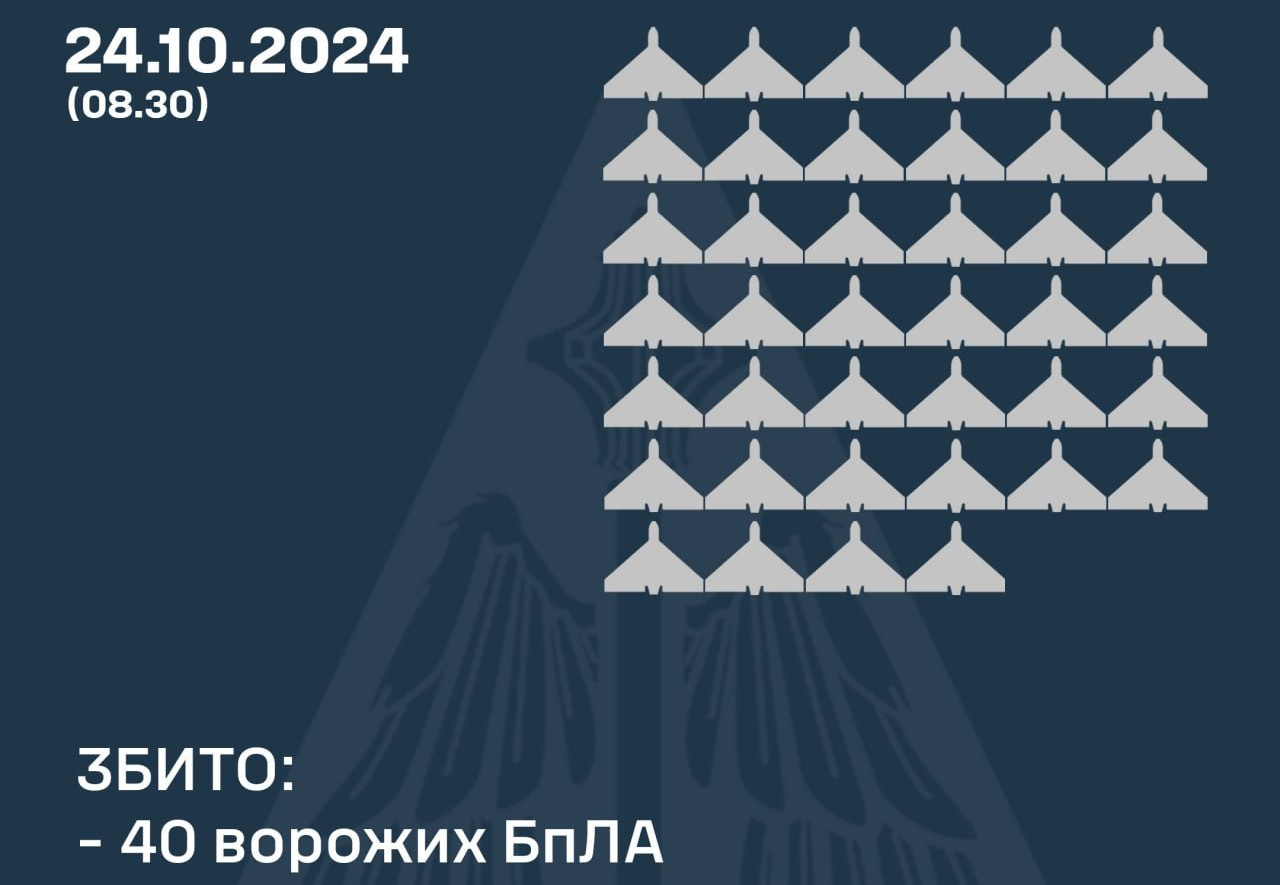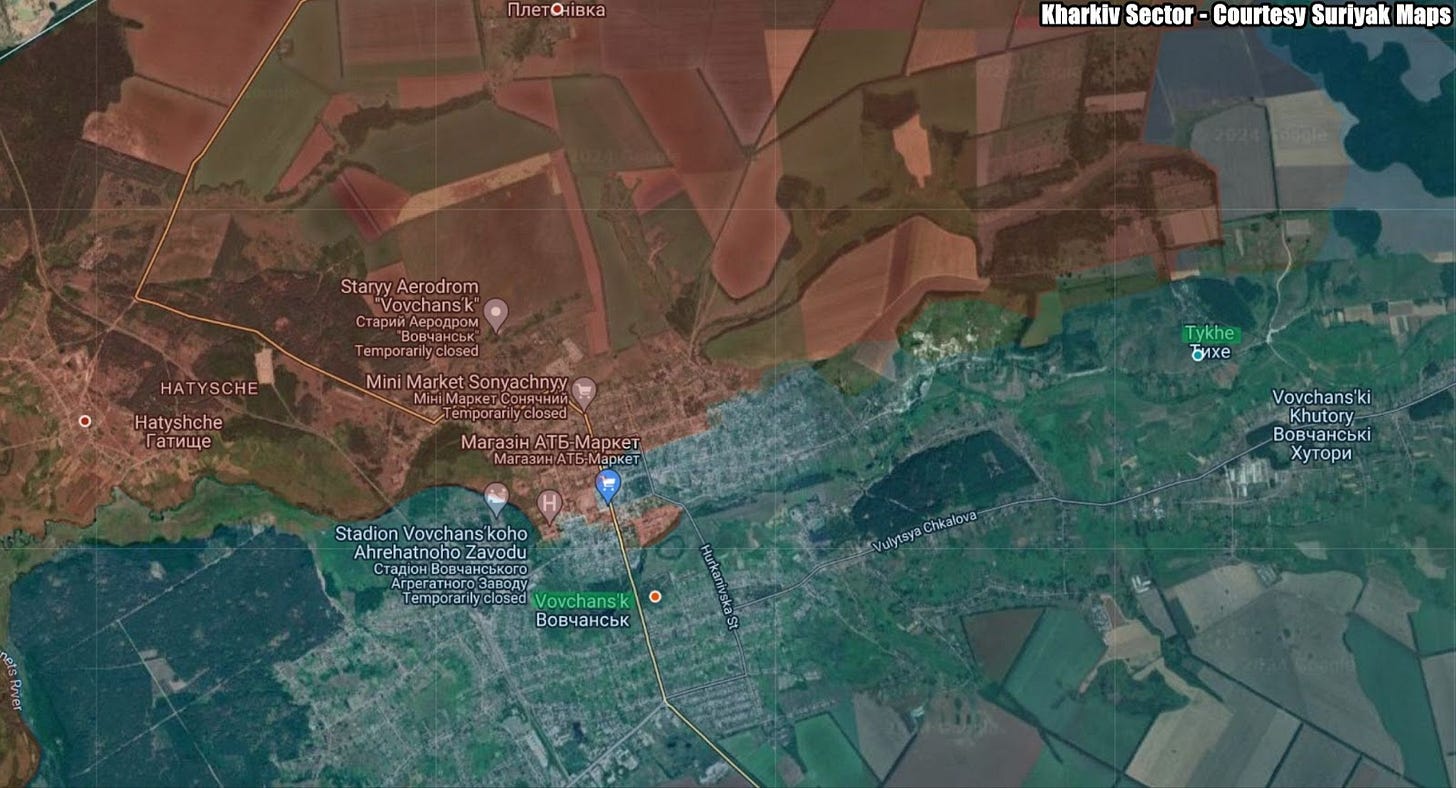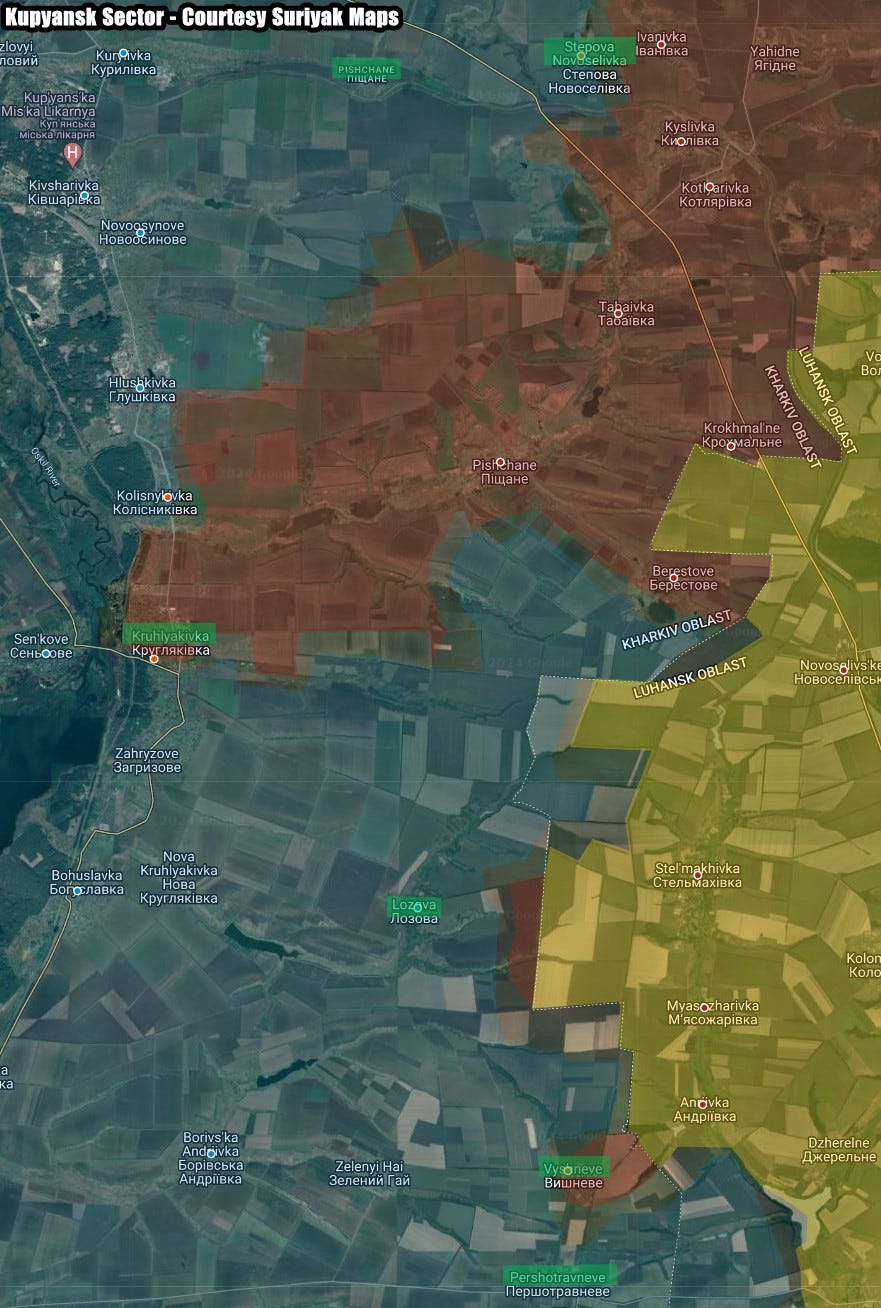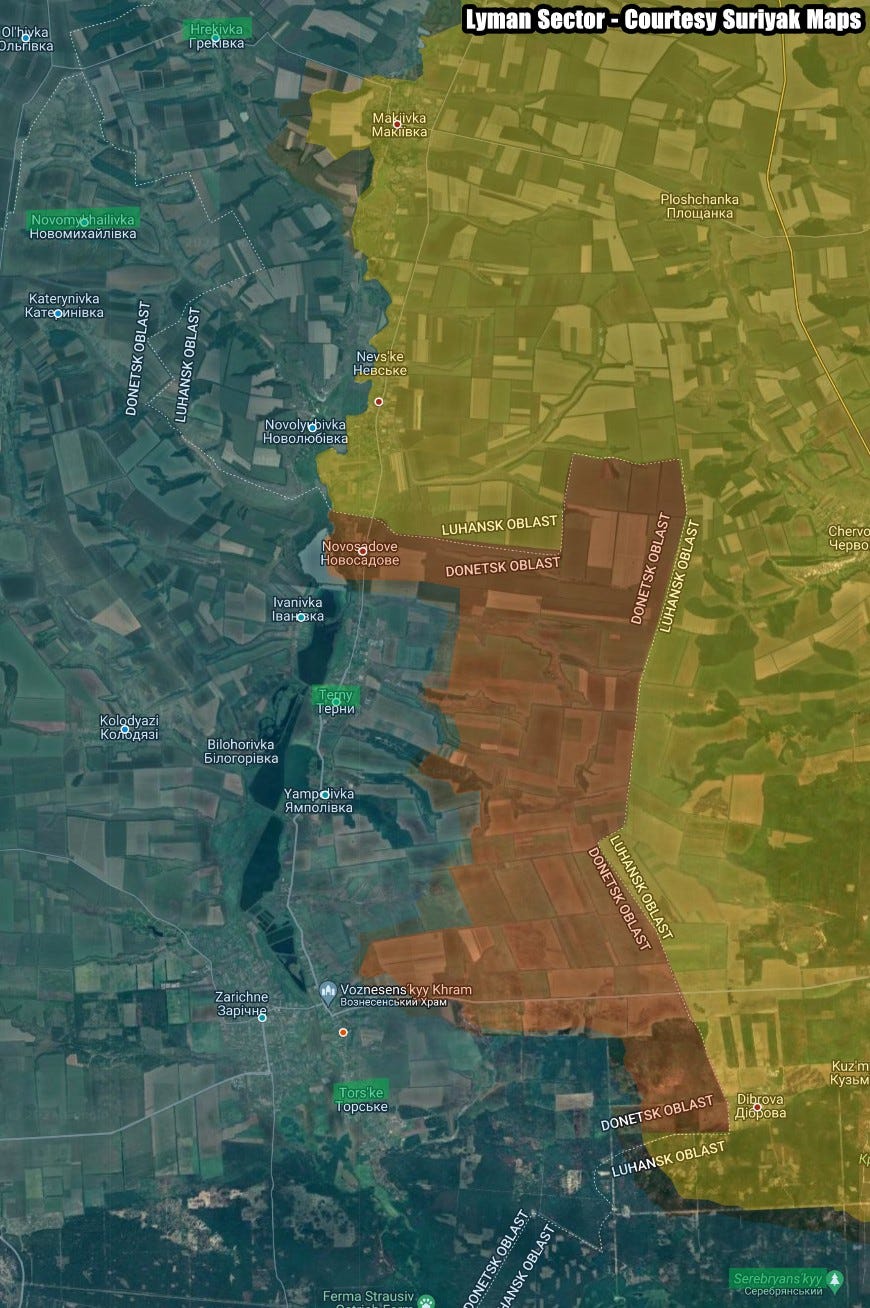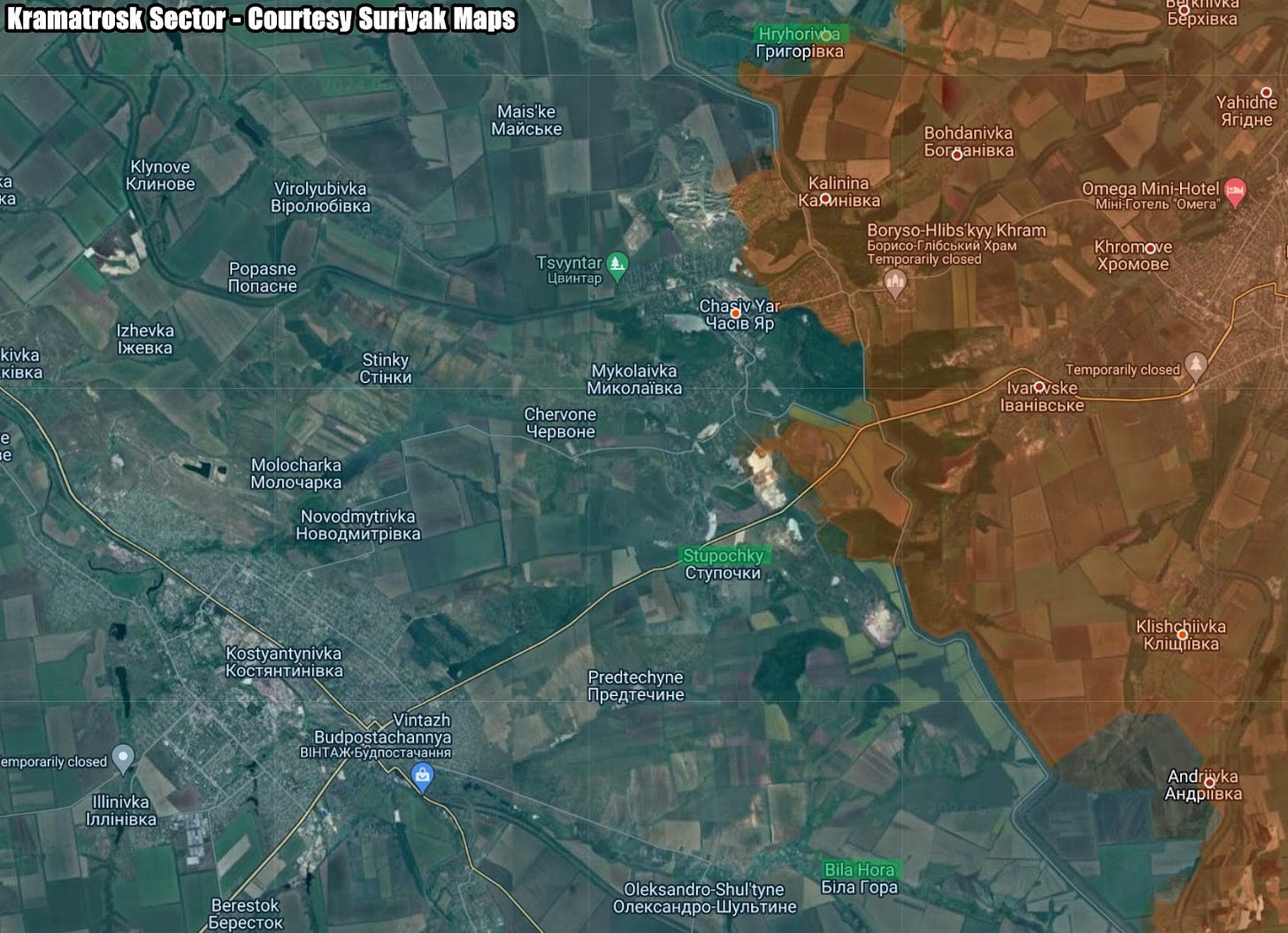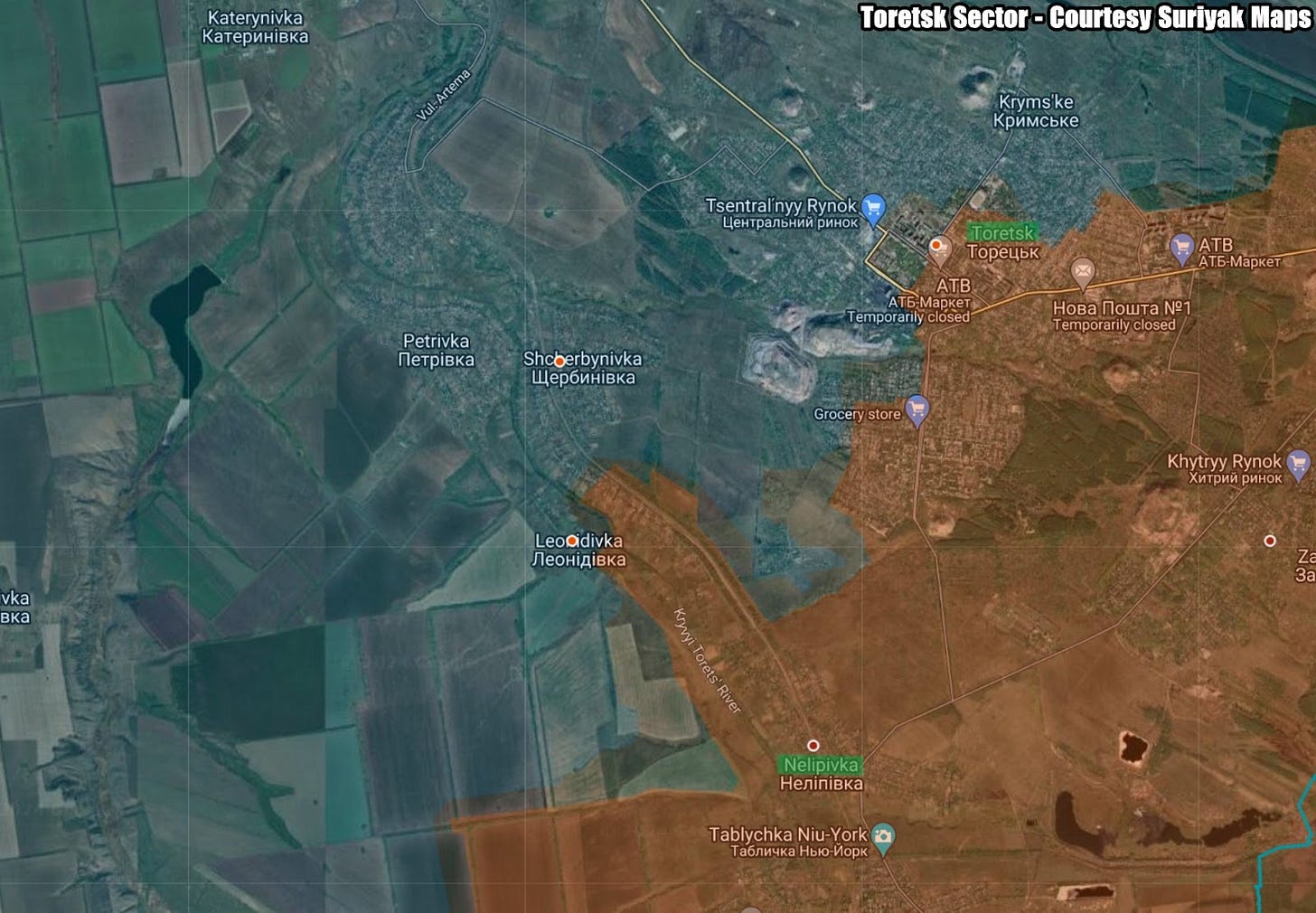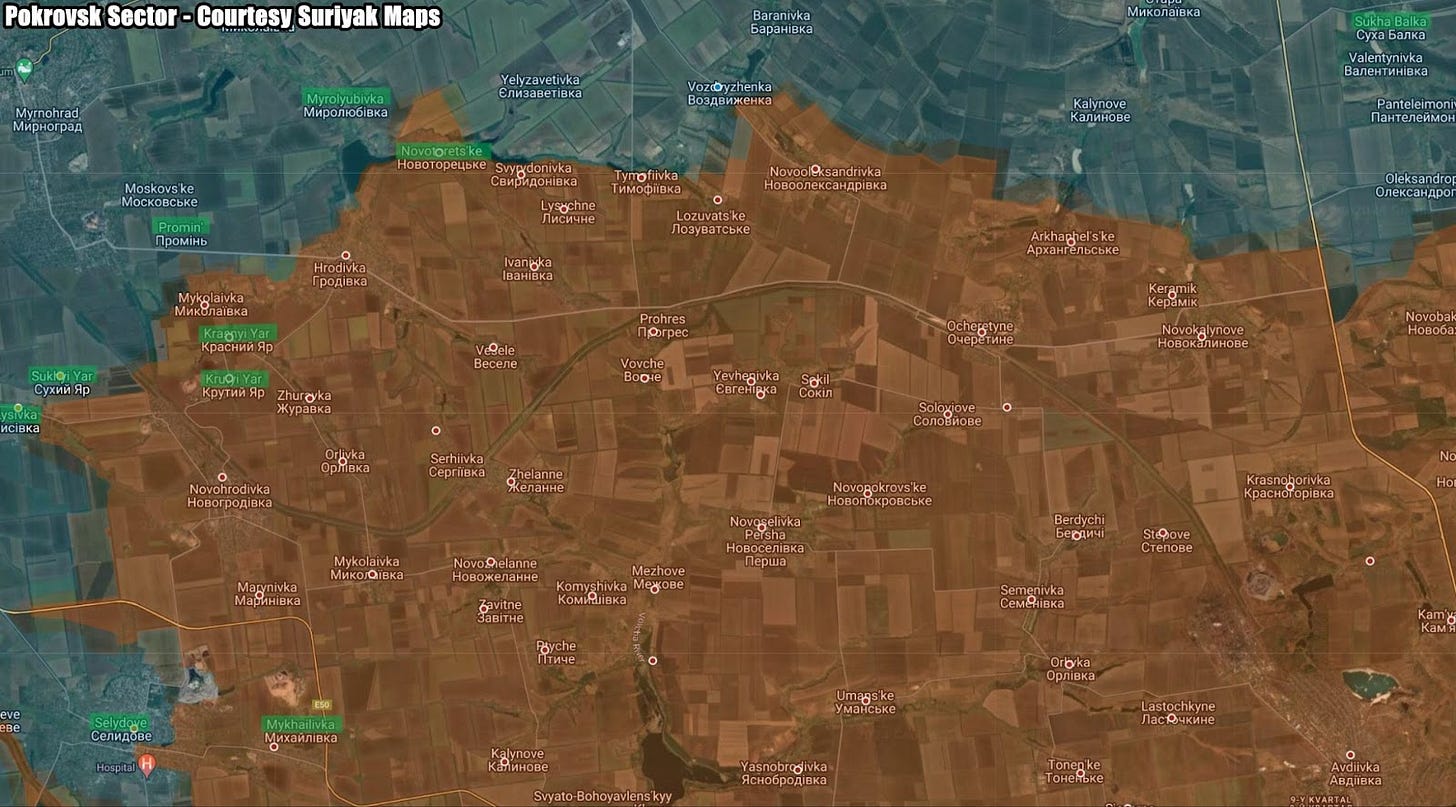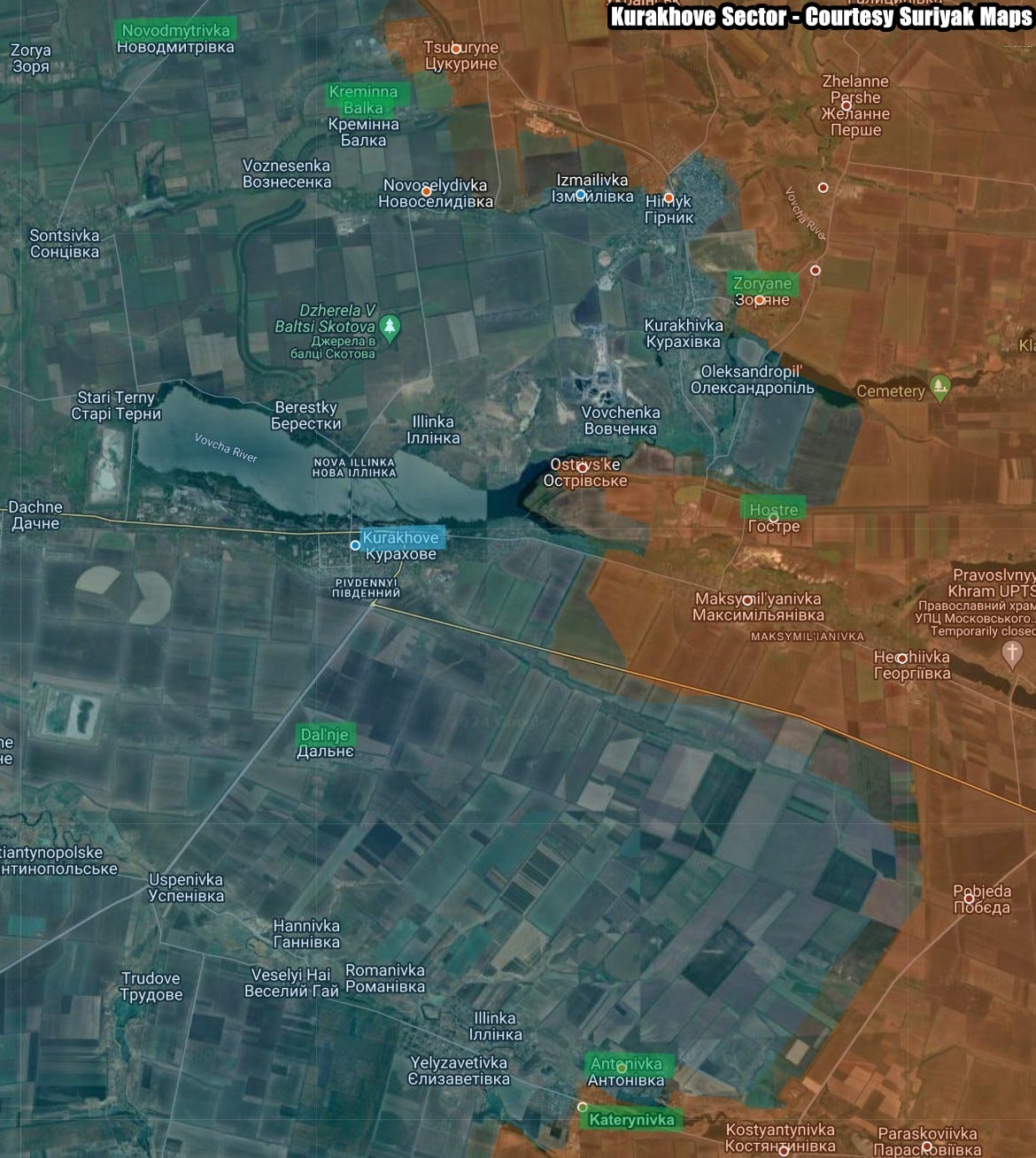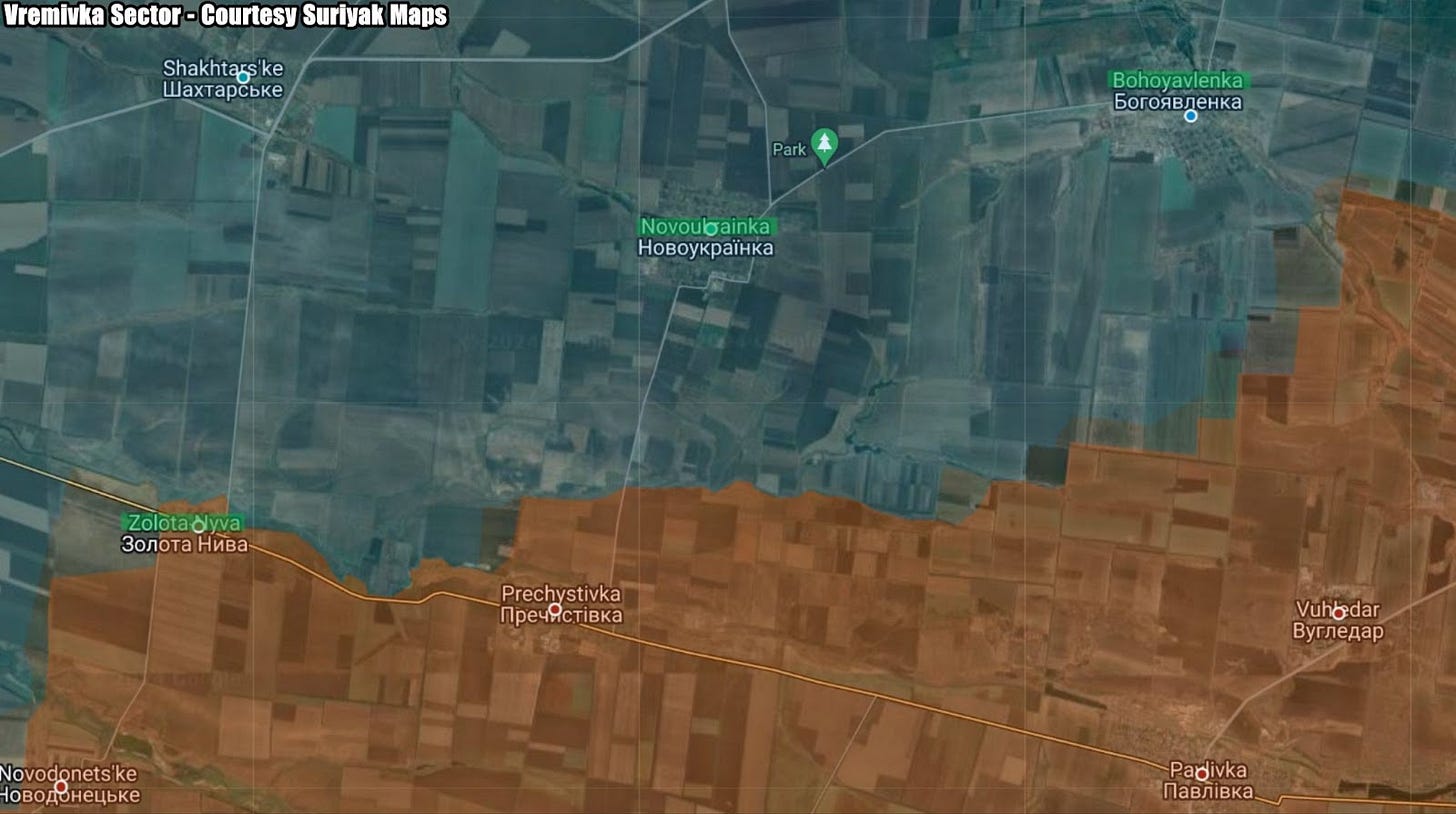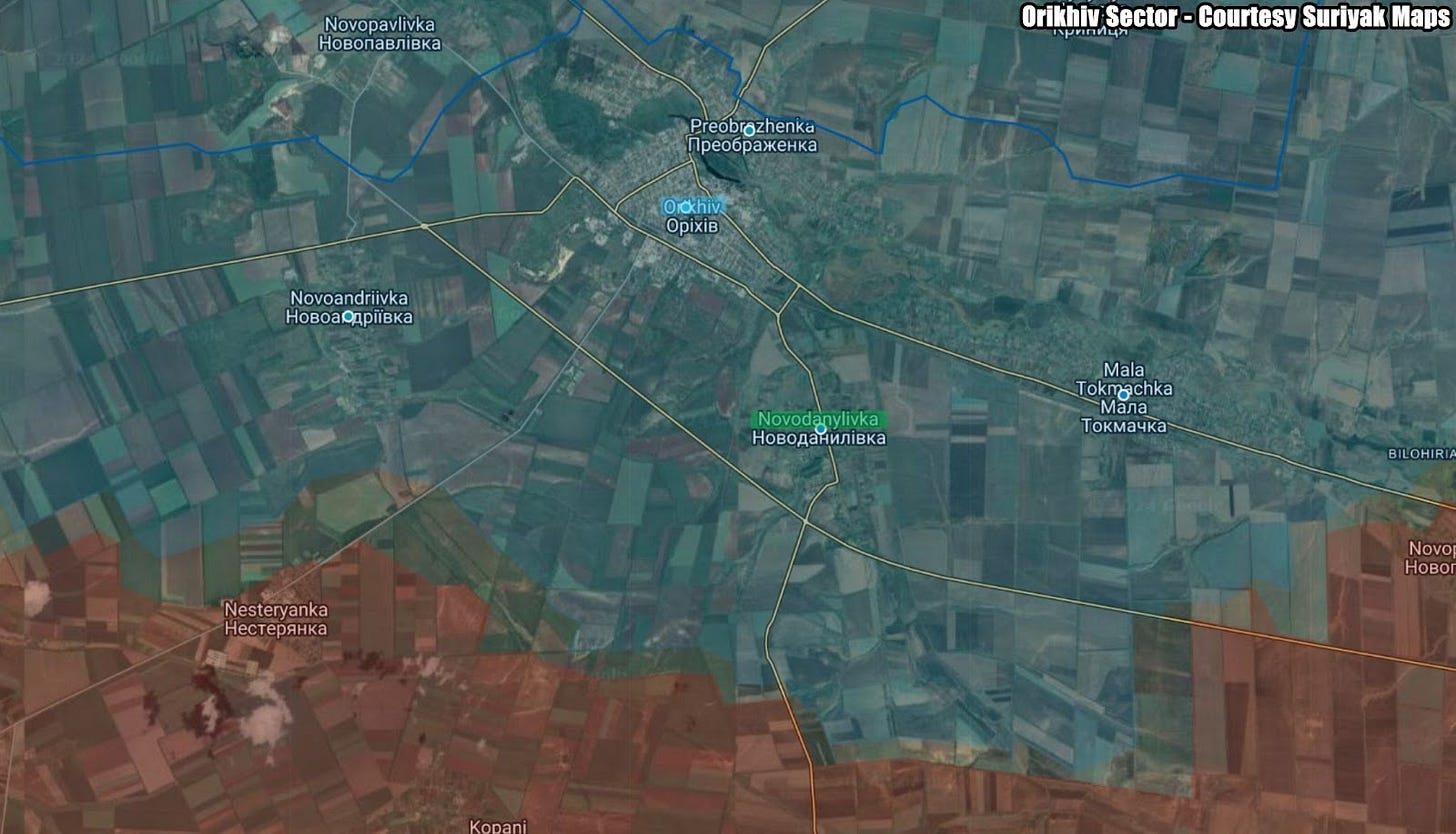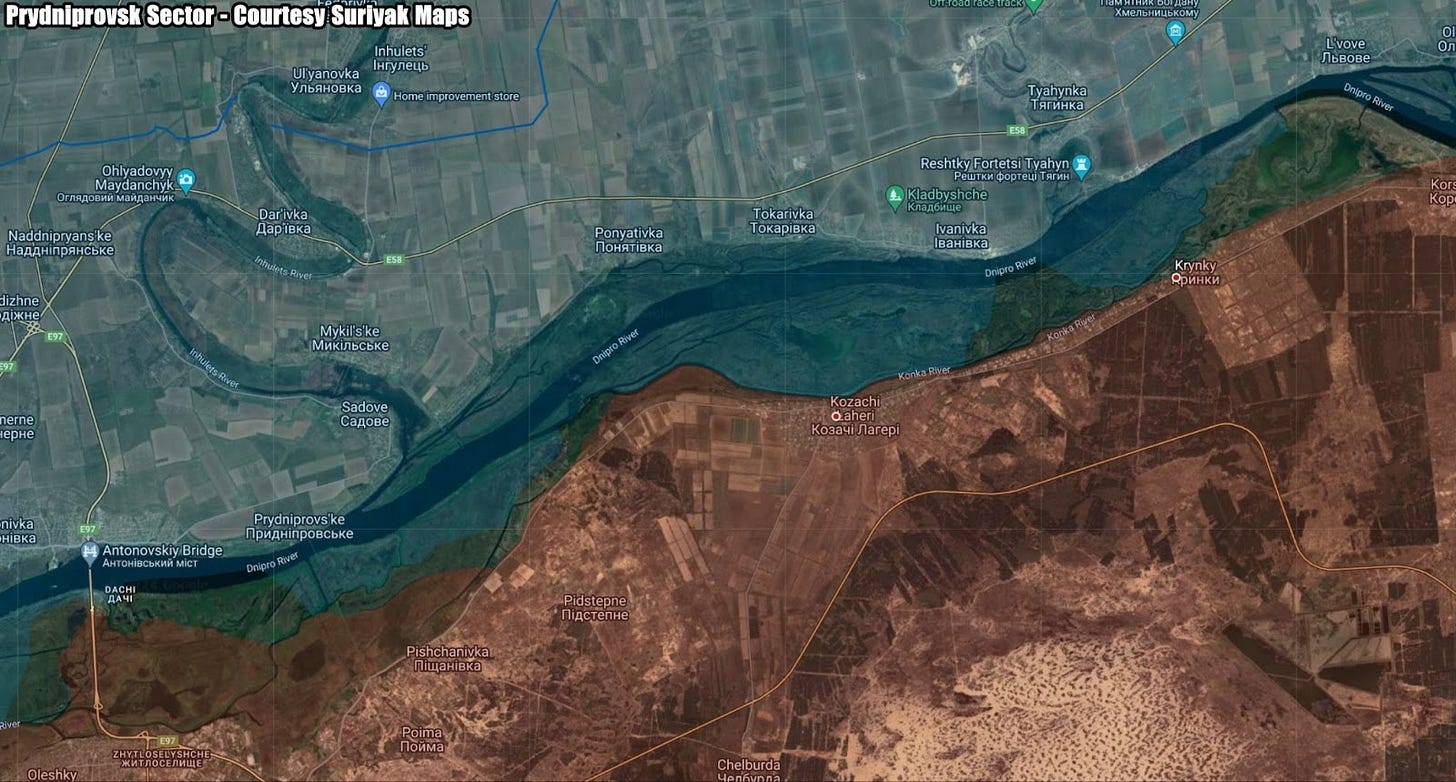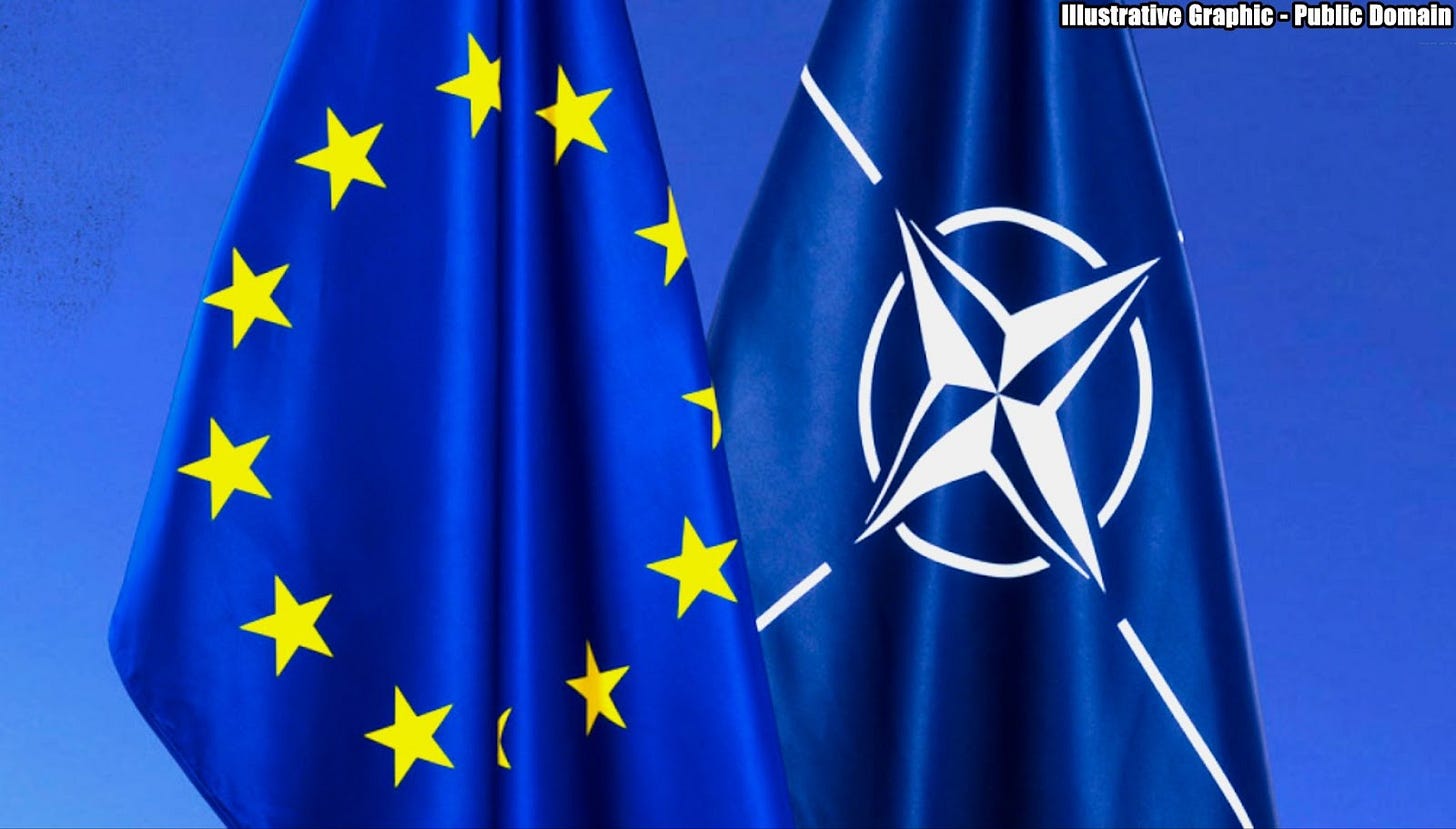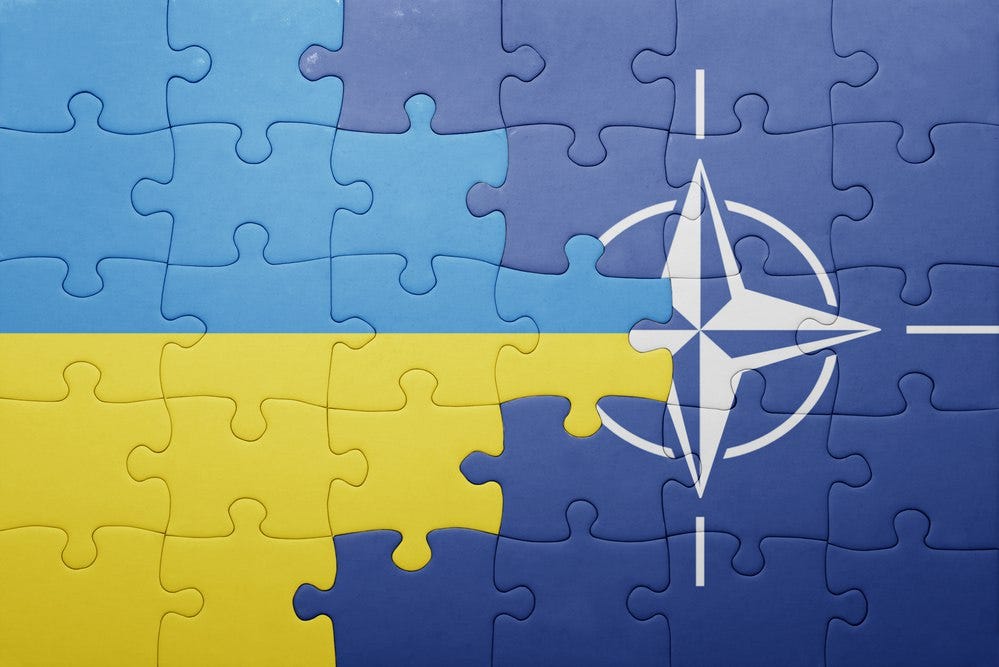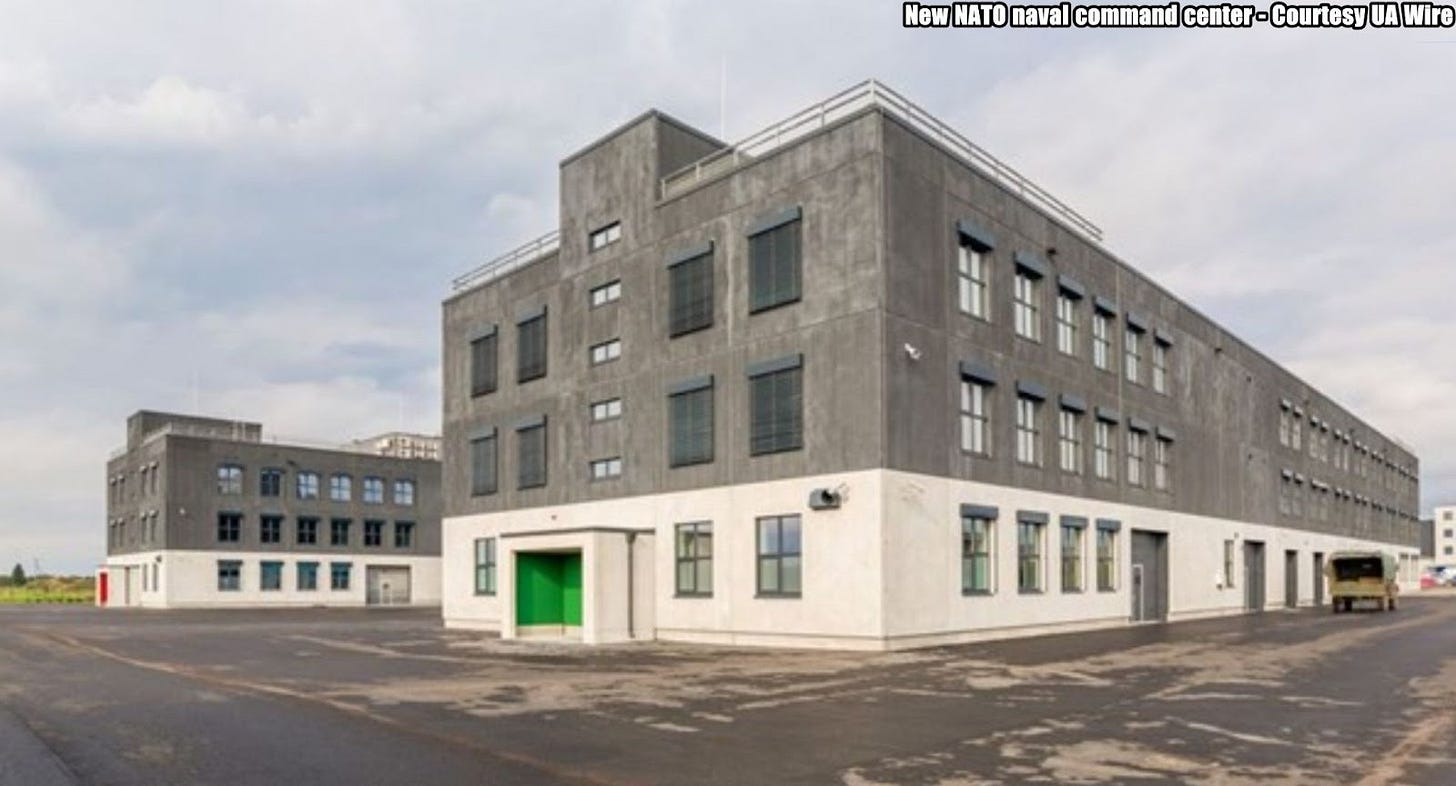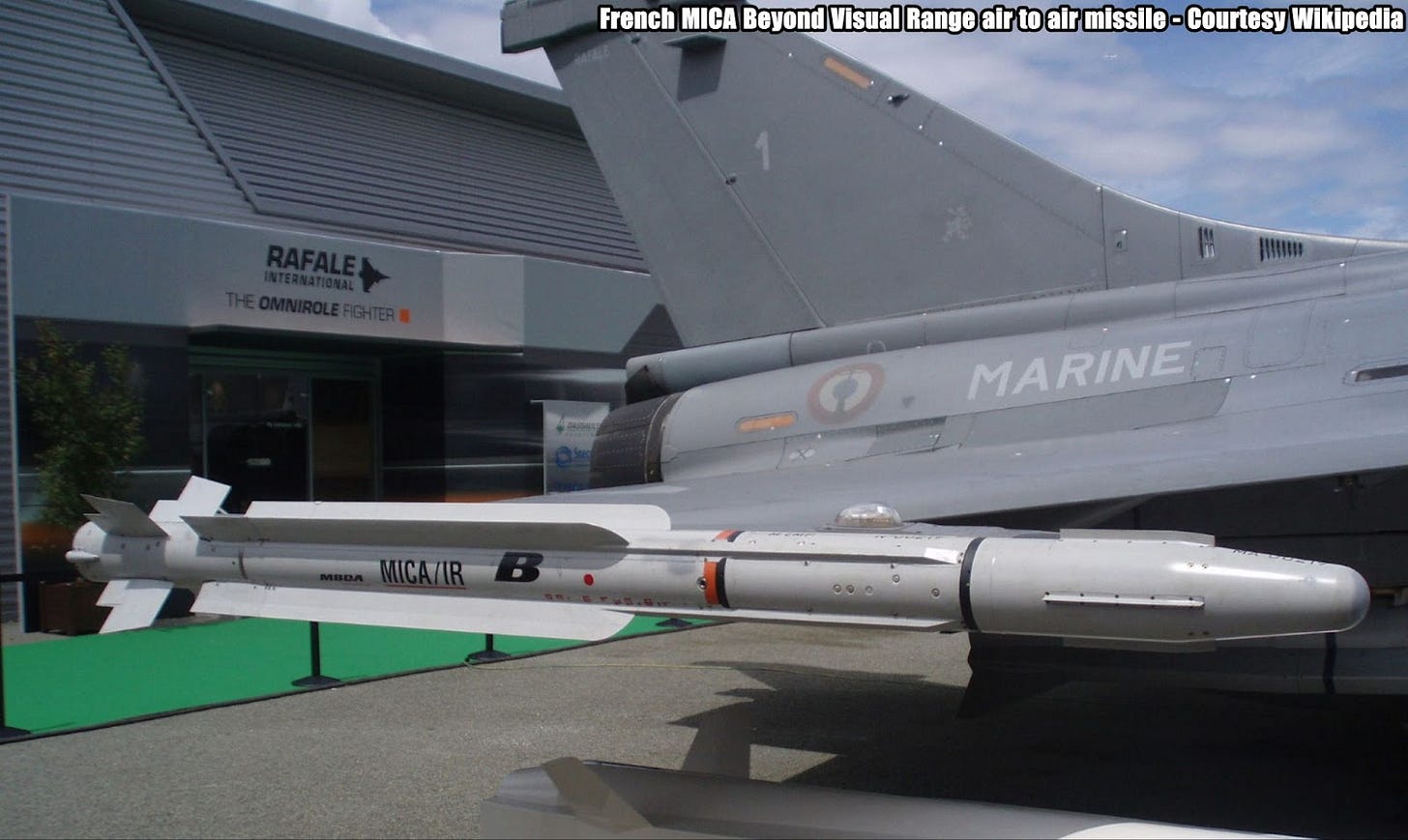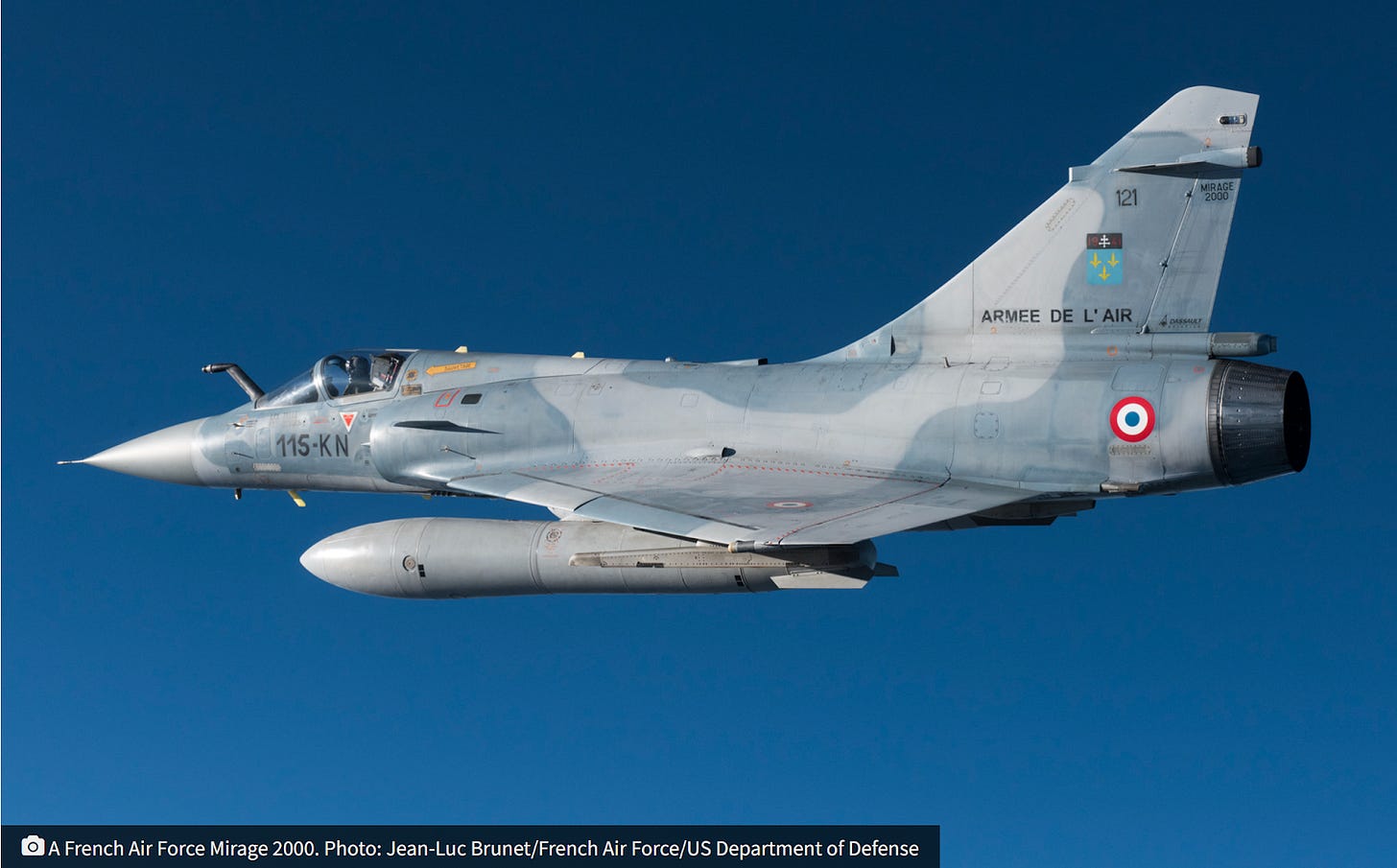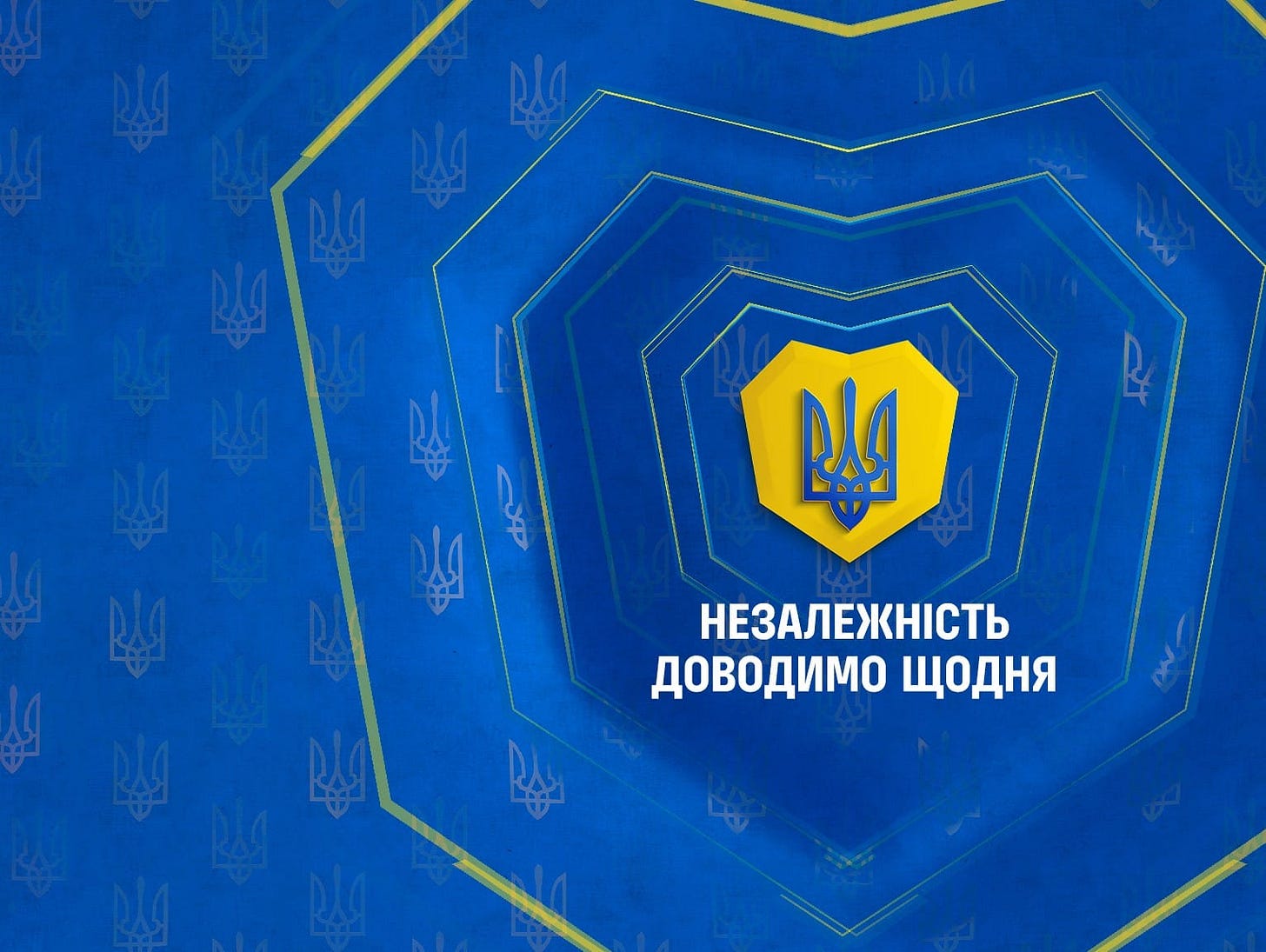Slava Ukraini! In early 2022 I began a Telegram channel aggregating news from a number of sources daily on the war in Ukraine. In June 2023 I began providing a daily draft for the Ukraine War Brief Podcast collecting news from over 70 sources daily, much of which formed the basis of the script. While the Podcast no longer exists I have continued to make this Brief available both on my own Substack and The People’s Media for those who wish to keep up with events on a daily basis.
All the latest news on the Russo-Ukraine War 6 days per week
ALONG THE CONTACT LINE
GSAFU Morning Report
The General Staff of the Armed Forces of Ukraine in its Operational Information update at 22:00 on Oct 23 stated that day 974 of the full-scale invasion of the Russian Federation against Ukraine was about to begin.
During the past day, 132 combat engagements took place. Over the past 24 hours, the enemy carried out 1 missile strike, 73 air strikes, 610 drone strikes and more than 3,000 artillery strikes across the positions of Ukrainian forces.
At the same time, Ukrainian soldiers continue to inflict losses in manpower and equipment on the occupying troops, exhausting the enemy along the entire front line and continue to disrupt the plans of Russian occupiers to advance deep into the territory of Ukraine.
ISW reports Russian artillery ammunition shortage.
The Institute for the Study of War (ISW), a US based think tank, in its Oct 23 Russian Offensive Campaign Assessment reported that recent Ukrainian strikes against Russian ammunition depots may be reducing the ratio between Russian and Ukrainian artillery fires across the frontline. Ukrainian outlet RBC-Ukraine reported on Oct 23 that Ukrainian First Deputy Defense Minister Lieutenant General Ivan Havrylyuk stated that the ratio between Russian and Ukrainian artillery fires is now about one-to-two in favor of Russian forces — a significant reduction from one-to-seven or one-to-eight in early 2024 and from one-to-three at the start of Summer 2024. Havrylyuk attributed this reduction to Ukrainian strikes on Russian ammunition depots and to Ukraine's qualitatively superior Western artillery systems. Ukrainian forces notably struck the Oktyabrskii and Toropets ammunition depots in Tver Oblast and the Tikhoretsk ammunition depot in Krasnodar Krai in Sep 2024.
Air Force Daily Report
On the night of October 24, 2024 (from 21:00 on October 23), the enemy attacked Ukraine with two Kh-22 cruise missiles from Tu-22M3 aircraft over the Black Sea, two Kh-59 guided air missiles from the airspace of the Bryansk region. and 50 strike UAVs of the "Shahed" type and unmanned aerial vehicles of an unknown type from the directions of Orel, Kursk and Crimea.
The air attack is repulsed by aviation, anti-aircraft missile forces, electronic warfare units and mobile fire groups of the Air Force and the Defense Forces of Ukraine.
As of 8:30 a.m., the downing of 40 enemy UAVs in Odesa, Mykolaiv, Dnipropetrovsk, Vinnytsia, Zhytomyr, Khmelnytskyi, Cherkasy, Kirovohrad, Kyiv, Poltava, and Chernihiv regions has been confirmed.
In addition, 7 Russian drones were lost in location, 1 – in the airspace of Ukraine, 2 more – returned in the direction of Russia and Belarus.
The enemy missiles did not reach their targets.
The Russian Border Incursion
The Institute for the Study of War (ISW), a US based think tank, in its Oct 23 Russian Offensive Campaign Assessment reported that Ukrainian and Russian forces recently advanced in the main Ukrainian salient in Kursk Oblast amid continued fighting on Oct 23. Geolocated footage published on Oct 22 indicates that Ukrainian forces recently advanced in southern Zeleny Shlyakh (southeast of Korenevo). Russian sources claimed that Russian forces repelled a Ukrainian mechanized assault on Zeleny Shlyakh on October 22.
Geolocated footage published on Oct 22 and 23 indicates that Russian forces recently recaptured Olgovka (east of Korenevo) and regained positions southeast of Plekhovo (southeast of Sudzha). Russian sources, including the Russian Ministry of Defense (MoD), claimed that Ukrainian forces unsuccessfully counterattacked near Plekhovo, Malaya Lokyna (north of Sudzha), Sudzha, Pokrovsky (southeast of Korenevo), and Zeleny Shlyakh.
Neither Ukrainian nor Russian sources reported ground attacks west of the main Kursk Oblast salient in Glushkovsky Raion on Oct 23. Elements of the 56th VDV Regiment (7th VDV Division) are reportedly operating near Novy Put (southwest of Glushkovo).
Chechen Akhmat Spetsnaz Commander Apty Alaudinov acknowledged on October 23 that Russian forces have committed at least 187 confirmed crimes, including murder and rape, since Russian forces deployed to defend Kursk Oblast but claimed that Chechen Akhmat forces were not responsible.
The Khortytsia operational-strategic group
(Responsible for the northeastern part of Ukraine. )
Kharkiv Sector: Over the last day Ukrainian Defense Forces repelled 7 Russian attacks in the area of Vovchansk and Tykhe. 2 engagements continue.
Kupyansk Sector: Russian Forces carried out 9 offensive actions against Ukrainian defensive positions near Pishchane, Stepova Novoselivka, Kruhlyakivka, Lozova, Vyshneve and Pershotravneve. 3 engagements continue.
Lyman Sector: Russian Forces carried out 12 offensive actions against Ukrainian defensive positions near Hrekivka, Novomykhailivka, Terny, Torske and the Serebryanskyy Forest. 2 engagements continue.
Siversk Sector: There has been no significant change in the combat environment in the last 24 hours.
Kramatorsk Sector: Russian forces carried out 5 unsuccessful offensive actions near Hryhorivka, Stupochky and Bila Hora .
Toretsk Sector: Russian forces carried out 4 unsuccessful offensive actions with air support near Toretsk and Nelipivka. 1 engagement is ongoing.
The Tavria operational-strategic group
(Responsible for the central-eastern and southeastern part of Ukraine.)
Pokrovsk Sector : Russian forces conducted 37 attacks against Ukrainian defences in the vicinity of Sukha Balka, Novotoretske, Myrolyubivka, Promin, Krasnyi Yar, Krutnyi Yar, Sukhyi Yar, Lysivka, Mykhailivka and Selydove. 8 engagements are ongoing.
Kurakhove Sector: Russian forces conducted 30 attacks against Ukrainian defences in the vicinity of Novodmytrivka, Kreminna Balka, Zoryane Hostre, Dalnje, Katerynivka and Antonivka. 4 engagements continue.
Vremivka Sector: Russian forces made 5 unsuccessful assaults against Ukrainian positions near Zolota Nyva, Novoukrainka and Bohoyavlenka.
Orikhiv Sector: Russian forces made 1 unsuccessful assault against Ukrainian positions near Novodanlivka.
The Odesa operational-strategic group
(Responsible for Kherson, Qırım, (also known as Crimea) and the Black Sea.)
Prydniprovsk Sector: In this sector, over the last day, Russian forces made 4 unsuccessful attempts to force Ukrainian units from their positions on the left bank of the Dnipro.
TEMPORARILY OCCUPIED TERRITORIES
Nothing major to report.
THE HOME FRONT
Ukrainian military considering creation of new cyber army branch
Ukrainian military, lawmakers, and experts discussed the creation of a separate branch of Ukraine's Armed Forces dedicated to cyberspace operations, the General Staff said on Oct. 24. The Kyiv Independent reports.
"The creation of Cyber Forces as a separate branch will significantly enhance the capabilities of the Ukrainian army, ensure effective planning and implementation of the full range of tasks in cyberspace, which, along with land, sea, air and space, is recognized as a separate operational domain," the statement read.
The participants of the meeting reviewed the main provisions of a draft concept of the branch, and defined the main functions and tasks of any future cyber army.
They also examined the experience of Western cyber forces, and analysed the relevant experience of the Ukrainian army during Russia's all-out war.
At the beginning of the Russian full-scale invasion, Ukraine launched an IT army, which was joined by thousands of specialists in the first days of February 2022.
It has reportedly carried out multiple cyberattack on Russian online websites. Russian hackers have also regularly targeted various Ukrainian government institutions as well as businesses with crippling cyberattacks aimed at disrupting numerous industries and government services.
Poll reveals 88% of Ukrainians back EU membership, 86% support NATO accession
A sociological survey conducted by the Razumkov Centre, a non-governmental think tank, presented at Interfax-Ukraine news agency on Thursday revealed over 80% of Ukrainians would vote in favour of Ukraine's accession to the EU and NATO if such a referendum were held any time soon. Ukrainska Pravda reports.
The survey was conducted from 20 to 26 September. It found that 81% of Ukrainians were ready to participate in a referendum on Ukraine's accession to the European Union.
Among those planning to participate in the referendum, 88% would vote in favour of joining the EU, while 8% would oppose it.
If a referendum on Ukraine's NATO accession were held soon, 82% of respondents would participate, with 86% of them voting in favour of accession and 10% opposing it.
Among those intending to participate in the EU referendum, 96% in Ukraine’s west support joining (with 3% against), 90% in the centre (with 5.5% against), 81% in the east (with 13% against), and 69% in the south (with 20% against).
Support for joining NATO among those intending to participate in the referendum is 95% in the country’s west (with 2% against), 88.5% in the centre (with 8.5% against), 78% in the east (with 16% against), and 64% in the south (with 26% against).
There has been an increase in the proportion of those who would vote in favour of joining the EU and NATO. In November-December 2021, 78% of potential referendum participants were ready to support EU membership, while 18% were opposed.
At that time, 70% of respondents were ready to vote for joining NATO, while 24.5% were against.
RUSSIAN WORLD
Nothing major to report.
INTERNATIONAL NEWS
US Congressman calls for consideration of "direct military action" if North Korean troops enter Ukraine
Republican Mike Turner, Chairman of the House Intelligence Committee, believes that if North Korean troops join the Russo-Ukrainian war, the United States should consider taking "direct military action". The Hill reports.
The White House said earlier Wednesday that Washington had assessed at least 3,000 North Korean troops are undergoing training at military bases in eastern Russia, with fears they will eventually be sent to Ukraine to fight alongside Kremlin forces.
Defense Secretary Lloyd Austin said Tuesday the U.S. has seen evidence that North Korean troops were in the former Soviet state.
“The Biden-Harris Administration must make clear that North Korean troops entering this conflict are a red line for the United States,” Turner said in a statement.
“If North Korean troops were to invade Ukraine’s sovereign territory, the United States needs to seriously consider taking direct military action against the North Korean troops,” he added.
Between early to mid-October, North Korea moved at least 3,000 soldiers into eastern Russia via ships from the Wonsan region in North Korea to the eastern Russian city of Vladivostok, White House national security spokesperson John Kirby told reporters.
“We do not yet know whether these soldiers will enter into combat alongside the Russian military, but this is certainly a highly concerning probability,” he said.
He added that after completing training, the soldiers could travel to western Russia and then engage in combat against the Ukrainian military, a development that would “demonstrate Russia’s growing desperation in its war against Ukraine.”
The U.S. has briefed the Ukrainian government on the situation, to include the implications of such a move and how the U.S. might respond, according to Kirby.
He also gave a stark warning that should the North Korean troops be employed against Ukraine, “they will become legitimate military targets.”
Washington and Berlin are slow-walking Ukraine’s bid for a NATO invitation
President Volodymyr Zelenskyy is running into a problem with his victory plan based on Ukraine getting an invitation to join NATO — some of the alliance’s key members aren’t keen on that happening. Politico reports.
Germany and the U.S. are among the major powers slow-walking Zelenskyy’s call for an immediate invitation to join NATO, according to four U.S. and NATO officials and diplomats who were granted anonymity to share the latest internal discussions.
In his victory plan, Zelenskyy asked for an immediate invitation, but recognized that actually joining the alliance would only be possible after the war with Russia ends.
In an interview with POLITICO, outgoing U.S. Ambassador to NATO Julianne Smith underlined the American position. “The alliance has not, to date, reached the point where it is prepared to offer membership or an invitation to Ukraine,” she said.
Hungary and Slovakia are also resisting, but they come from a different starting point. Their current populist leaders take a generally pro-Kremlin line, with Hungarian Prime Minister Viktor Orbán blocking EU funds to arm Ukraine and quitting NATO’s program for sending lethal aid to Kyiv.
“Countries like Belgium, Slovenia or Spain are hiding behind the U.S. and Germany. They are reluctant,” said one of the NATO officials. A second official said that countries “support it in the abstract but once it gets closer to materializing” they will start to balk at the idea more publicly. That puts them at odds with countries like the Baltics and Poland, which are more enthusiastic.
Scholz told reporters during U.S. President Joe Biden’s visit to Berlin last week: “We are making sure that NATO does not become a party to the war, so that this war does not turn into a much greater catastrophe.”
However, the officials who spoke to POLITICO sought to underline that neither the U.S. nor Germany are ruling out Ukraine’s eventual accession to the alliance.
The Biden administration’s position has long been that admission to NATO would occur after the war ends — but no timeline has been outlined to avoid enraging Russian leader Vladimir Putin.
Russia protests new NATO naval command center in Rostock, Germany, citing 1990 agreement breach
On Monday, October 21, a new tactical naval headquarters opened in Rostock. This center is tasked with carrying out several NATO operations, prompting an official protest from Russia. On October 22, Russia's Foreign Ministry summoned Germany's ambassador in Moscow, Alexander Graf Lambsdorff, to express their grievances, reports Bild.
Russia claims that the inauguration of the naval command center in the city represents an expansion of NATO infrastructure in the former East Germany, potentially breaching an agreement made during the German reunification in 1990.
Journalists from the publication point out that the new facility should be considered a hub for the German Navy with international involvement rather than a NATO headquarters. Rostock will not serve as a permanent deployment site for NATO forces.
Despite this distinction, Russia's Foreign Ministry insists that the establishment of the command center violates the “Two Plus Four Agreement” of 1990, which prohibited the deployment of foreign troops on the territory of the former GDR . They warn that NATO's military build-up could have adverse consequences and demand clarifications from Berlin.
Germany's Federal Defense Minister, Boris Pistorius, who led the inaugural ceremony, emphasized the facility's critical role in maritime security and the defense of NATO's Eastern flank, noting the Baltic Sea region faces regular challenges from Russia. The center will monitor developments in the region and coordinate naval activities among NATO allies.
“It commands naval operations during peacetime, crises, and war,” explained Pistorius.
The leadership of the new center has been assigned to German Admiral Stefan Gaisch for the next four years, after which Poland and Sweden will take their turns.
Pistorius also pointed out that Russian air forces deliberately provoke and violate the airspace of Germany and its partners. Russian research vessels have been observed moving "suspiciously close" to crucial infrastructure points, pipelines, and wind farms.
Moreover, Germany’s Defense Minister warned about Russia bolstering its presence in the Baltic Sea, establishing a heavily armed "fortress" in the Kaliningrad region equipped with “hundreds of missiles that could target and reach European capitals.”
NYT - China chafes as North Korea sends soldiers to fight in Ukraine.
North Korea’s decision to dispatch troops to help Russia subdue Ukraine may put another Kremlin ally, China, in a tough spot diplomatically. The New York Times writes.
Earlier this month, China and North Korea hailed their 75 years of diplomatic relations by reaffirming ties that they once described as being close as “lips and teeth.”
But North Korea’s decision to dispatch thousands of troops to Russia to fight Ukraine, revealed this week by Defense Secretary Lloyd J. Austin III, will test those bonds like never before.
China has been frustrated by the instability Pyongyang sows in North Asia with its nuclear weapons program and its periodic threats to annihilate South Korea. Now North Korea is inflaming a war in Europe, which could deepen a broader confrontation over the global order that pits the United States and its allies against an axis of anti-Western powers led by China and Russia.
China has tried to cast itself as a force for peace and contrast itself with the United States, which it accuses of trying to wage a new Cold War. The prospect of soldiers from China’s only treaty ally battling Western-backed forces on behalf of one of Beijing’s closest partners undermines that narrative.
Another concern China’s leadership may have, analysts said, is the exchange of military technology from Russia to North Korea in return for sending troops. That could embolden the North to act more aggressively toward South Korea or Japan, and at the same time, diminish Beijing’s ability to influence the reclusive state even as it relies on China for trade and aid.
North Korea’s provocative behavior has already contributed to a trilateral security alliance between the United States, Japan and South Korea signed at Camp David last year. The pact, which China has likened to an Asian NATO, has added to Beijing’s feeling that it is being constrained and encircled by the United States and its allies.
China is now stuck in a middle ground. While the West has tried to isolate Russia, China has deepened trade and diplomatic ties to Moscow since Russia invaded Ukraine in 2022. Beijing may not know how to rein in North Korea’s efforts to help the Kremlin, said Victor D. Cha, a professor of government and international affairs at Georgetown University and the Korea chair at the Center for Strategic and International Studies in Washington.
“China is caught between paralysis and incompetence on this. While they are supporting Russia’s efforts in the war indirectly, they cannot be happy with the D.P.R.K. piece,” Mr. Cha said, referring to North Korea’s formal name, the Democratic People’s Republic of Korea. “There is nothing good for them in this, short or long term.”
At a summit of emerging market countries in Russia on Wednesday, China’s top leader, Xi Jinping, reiterated that stance by calling on countries not to add “oil to the fire.”
Turkey blocks exports of military-linked goods to Russia after US warning.
Turkey has secretly barred exports to Russia of US military-linked hardware after Washington warned Ankara of “consequences” if it did not halt the trade. The Financial Times reported on Oct 23.
Ankara has in recent weeks adjusted its customs systems to block exports of more than four dozen categories of US-origin goods that Washington and its western allies view as vital to Moscow’s war effort in Ukraine, according to three people with direct knowledge of the matter.
Turkey’s electronic customs system no longer allows exporters to proceed with sending shipments of the so-called “battlefield goods” to Russia, one of the people said, having previously enabled them to be transported there. Similar goods originating from the EU were blocked earlier and remain so, two of the people said.
The trade curbs, which affect civilian parts such as microchips and remote control systems that western allies say are being used in weaponry, were not publicly announced because of “political sensitivities”, one of the people said.
The quiet bans on military-linked exports to Russia, however, are the latest sign that Turkey is stepping back from the role as a lifeline from western sanctions that it embraced earlier in the war.
Turkey’s trade curbs come as the US is seeking to staunch Russia’s access to western technology that is being used in Moscow’s military systems more than two years after Putin launched a full-scale invasion of Ukraine.
Matthew Axelrod, the assistant commerce secretary leading US efforts to keep sensitive technology out of the hands of America’s adversaries, in August met Turkish officials and executives in Ankara and Istanbul. At that time, he warned that Turkey would face “consequences” if it did not take steps to stop dealings with Russia in battlefield goods.
Axelrod is a senior official at the Bureau of Industry and Security, which has broad powers to apply damaging export controls.
“We believe the Turkish government heard and understands our concerns. We’re optimistic we’ll see increased co-operation going forward,” Axelrod told the Financial Times in response to queries about signs that Turkey is moving away from the trade in battlefield goods.
MILITARY & TECH
French Mirage 2000s Destined For Ukraine Will Fly With Storm Shadow, MICA Missiles
France announced it will deliver three of its Dassault Mirage 2000 multi-role aircraft to Ukraine in the first half of 2025, according to the Ukrainian Defense Post news outlet, citing French media. It is the first tranche of an undisclosed number of the jets France said it will give to Ukraine. The War Zone reports.
“The Mirage 2000s that will be delivered to Ukraine will be equipped with new equipment,’ French Armed Forces Minister Sébastien Lecornu said in an interview with Bordeaux-based news agency Sud Ouest.” Defense Post reported. “This transformation operation will take place at the Cazaux base in Gironde. The aim is to equip them with air-to-ground combat capabilities and strengthen their electronic warfare system.”
As we suggested back in June, it’s now confirmed that the jets will be armed with versions of the MICA beyond-visual-range air-to-air missile, as well as the stealthy SCALP-EG cruise missile and the Hammer rocket-assisted precision-guided bomb, according to the French La Tribune news outlet. This is in addition to their 30mm cannons. “But the most important thing is the training of pilots and mechanics, which is continuing in Nancy,” Lecornu added.
An unknown number of Mirage 2000s are being upgraded right now for Ukraine, which will also include enhancements to their electronic warfare suite.
Earlier this month, we reported that France announced details of its plans to put surplus Mirage fighters into Ukrainian hands. The delta-winged jet is set to become the second Western-made fighter to be provided to Kyiv, following the F-16, the first of which arrived in Ukraine this summer.
That’s it for today’s Draft folks if you would like to keep up with events in Ukraine daily please consider subscribing, its free!
Feel free to share this update with your friends. Heroyam Slava!







